Exclusive 3:16 interview with Johann Gottfried Herder
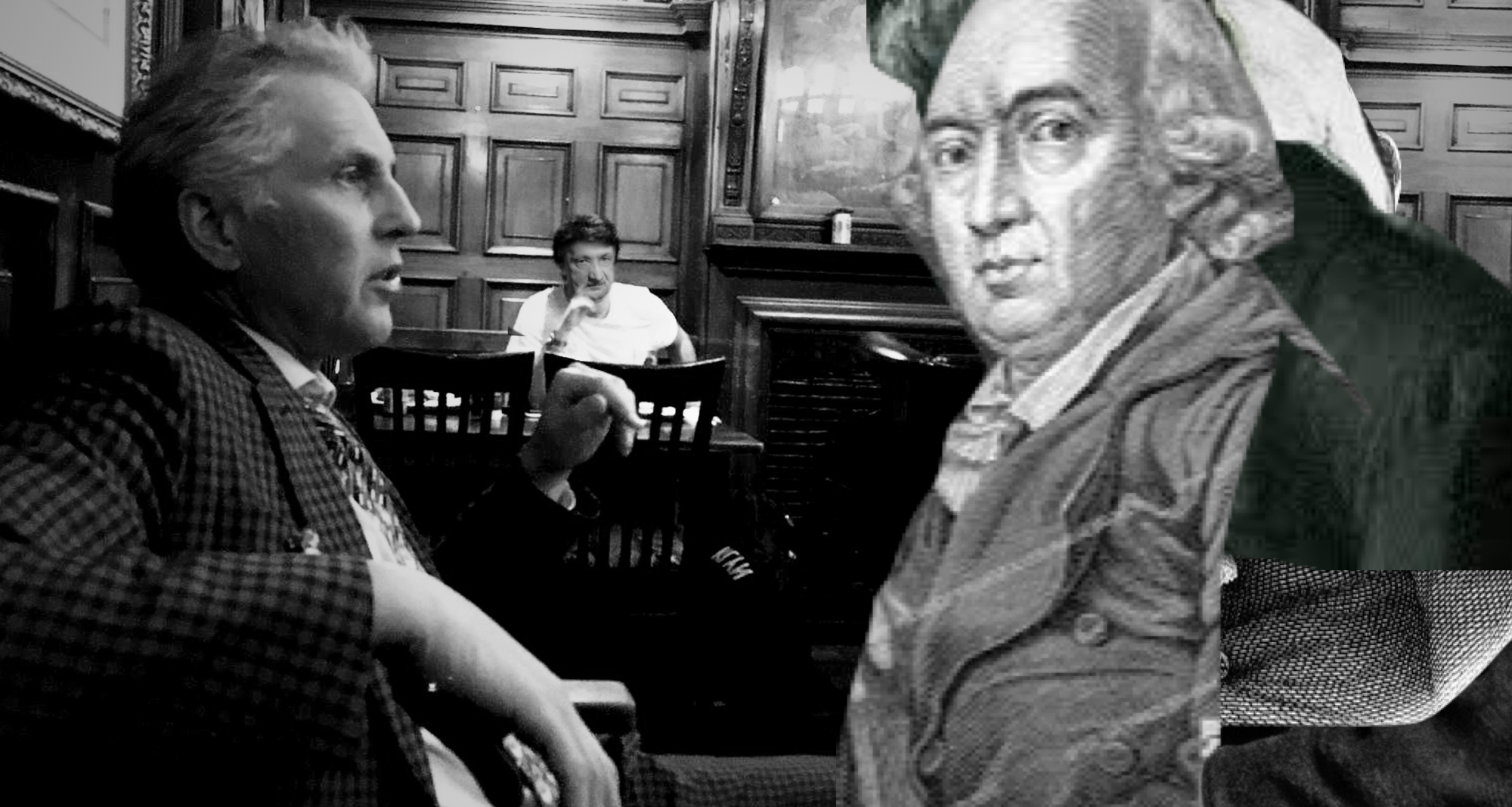
Interview by Richard Marshall
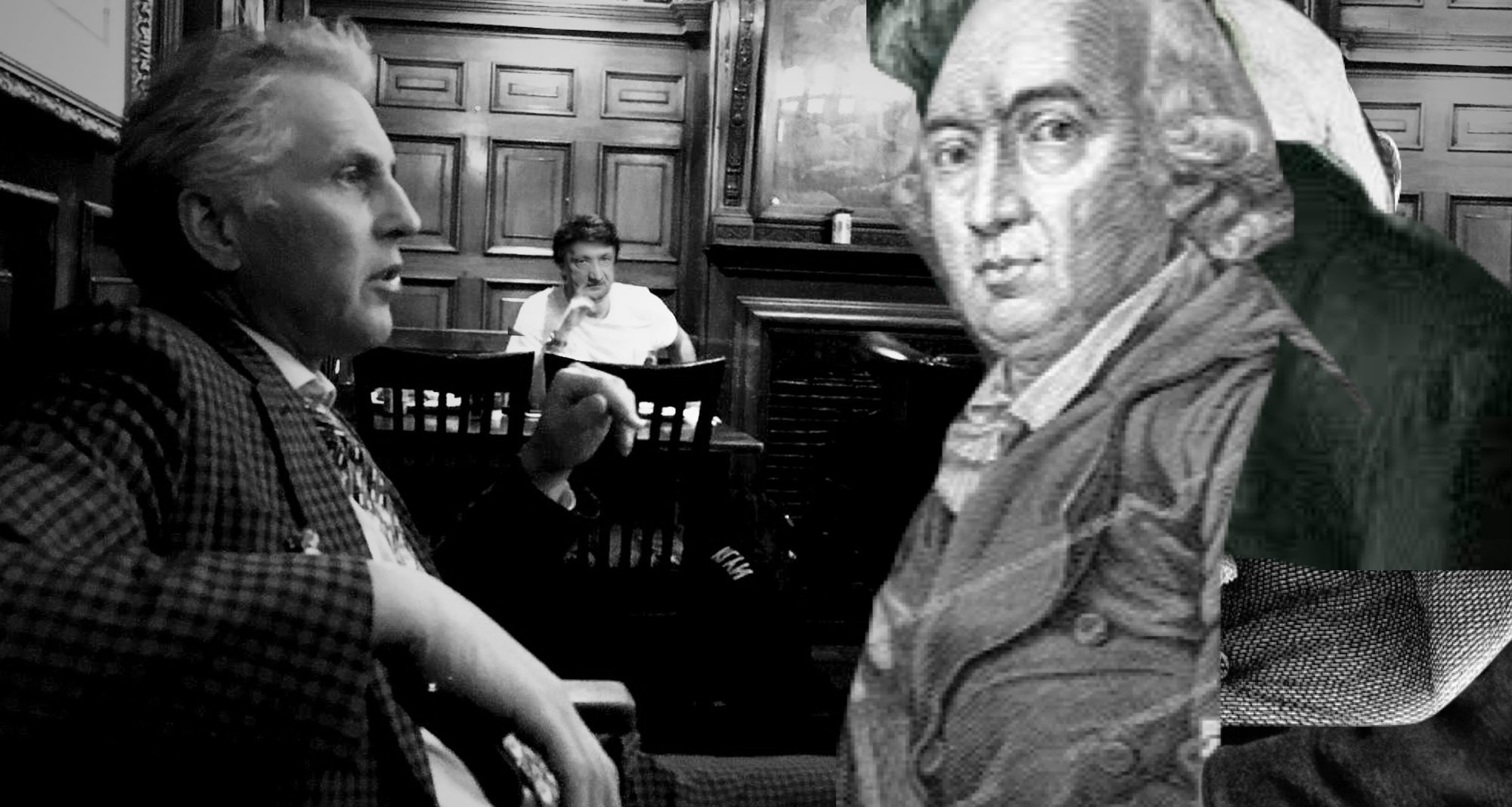
Johann Gottfried Herder is a German philosopher, theologian, poet, and literary critic. He is associated with the Enlightenment, Sturm und Drang, and Weimar Classicism.
3:16: What made you become a philosopher?
Johann Gottfried Herder: To think what is true, to sense what is beautiful and to want what is good, hereby the spirit finds purpose of a life in reason. Of course, the universal dress of philosophy and philanthropy can conceal repression, violations of the true personal, human,local, civil, and national freedom. And those that embrace the entire universe with love, for the most part love nothing, but their narrow selves. So it’s tricky Richard
3:16: I see. You’re not a systematic philosopher are you?
JH: It lies in the weakness of human nature to always want to set up a system; perhaps it also lies in the weakness of human nature never to be able to set one up. He who shows this latter weakness is more useful than the person who sets up three systems.
3:16: So Spinoza and Wolff do your head in? And the Kant you found influential was his pyrrhonist stuff, not his systematic Critiques?
JH: Well I am writing for Pyrrhonists. Premature impudent system-addiction entirely damages true science.
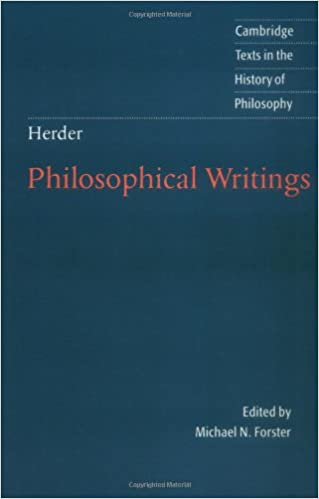
3:16: Is this why you say we need a negative philosophy? Can you explain what you take this to mean?
JH: Negative philosophy asks how far the human nature should really ascend in its ideas since it cannot ascend higher, and to what extent one should express and explain oneself since one cannot express and explain oneself any further. How much one would be able to sweep away here which we say without in the process thinking anything… which we want to say without being able to think it! A man who thought this negative philosophy into existence would stand at the sphere of human cognition as though on a globe, and if he could not raise his head above these limits and look around into open air, at least he would dare to thrust forth his hand and would cry “here is emptiness and nothing”.
3:16: And you think by doing this metaphysics would end which would be a good thing because it’s harmful? You sound a bit like Bacon and Locke and the British empiricists who said something similar.
JH: Yes. In that case ideas would creep away out of our whole metaphysics, from ontology to natural theology, to which merely the words have given admission and a false citizenship.
3:16: Are you a sentimentalist like Hume thinking reason the slave of the passions?
JH: Yes. The philosophy of our century is supposed to cultivate and what else would that mean other than awakening or strengthening the inclinations through which mankind is happy – and what a gulf for this to happen.
3:16: Can’t ideas cultivate?
JH: Ideas only produce ideas.
3:16: What do you make of cognitivist ethicists like Kant and Wolff?
JH: Well honestly Richard, if this is the best that even experts can say in explanation and justification of morality then morality must certainly be a sham so I may as well ignore it and do as I please.
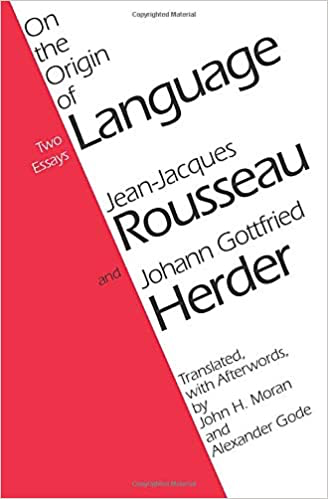
3:16: Fair enough. You’re famous for your naturalist philosophy of language. Why do you eschew the divine origins of language even though you don’t argue against the existence of a deity?
JH: The higher origin, as pious as it seems, is entirely irreligious; with each step it diminishes God through the lowest, most imperfect anthropomorphisms. The human origin shows God in the greatest light: His work, a human soul, creating and continuing to create a language through itself because it is his work, a human soul. The origin of language hence only becomes divine in a worthy manner insofar as it is human.
3:16: Is language the basis of all thought?
JH: I'd say so. Whoever surveys the whole scope of language surveys a field of thought and whoever learns to express himself with exactness precisely thereby gathers for himself a treasure of determinate concepts. Language is a form of cognition, not merely in which but in accordance with which thoughts take shape, where in all parts of literature thought sticks to expression, and forms itself in accordance with this. Language sets limits and contour for all human language.
3:16: Are Plato, Augustine and the British Empiricists all wrong to think that concepts or meanings are to be equated with a kind of thing and do you think usage is the better explanation?
JH: Yes. Let us seek the word’s concept not from etymologies, which are always uncertain, but according to the clear use of the name in its various times. No boy will once he has grasped the word’s sense, seek the sense outside and behind the word, but will seek it in the word and take possession of it by means of the word. Let’s face it, nothing in the world, I think, has produced more opinions and perhaps more errors than that one has considered and hypostatized abstract concepts as individual existences. Thus do we hypostatize Nature, Virtue, Reality, Perfection. Orginally these concepts were nothing but abstractions, relations of this to that, so-to-speak shadows and colours of things; we make them into things themselves, and hence imagine finished skill-things , which the soul collects like gold pieces, realities that are only relations and which we think of as positions, perfections that we individualise and attribute as such to the soul. Let us by analysis of the concepts get back to the origin of these words, and we shall see in them substantivised phenomena.
No language expresses things but only names. Also no human reason therefore has cognition of things but it has only characteristic marks of them which it signifies with words.
3:16: So is appropriate linguistic behaviour necessary for semantic understanding?
JH: Look, who can express himself about all subjects in a language of common life more fluently and correctly than the common man of good healthy understanding? But now, try in his case to separate the thought from the expression – you do not understand the word.
3:16: Ok, do you think our sensations depend on our concepts as well as concepts depending on sensations? In so doing are you retaining the psychologistic baby Frege and Wittgenstein, for instance, threw out?
JH: Yep. I’m holding onto that baby!
3:16: Can we achieve concepts that are non-empirical by means of a metaphorical extension of the empirical ones?
JH: I think so Yes. The whole of language is allegory. Language can only connote the finest concepts of the understanding through ‘the same another’, ‘in and outside’, ‘before and after’. Throughout in language sensuous words connote the finest concepts of the understanding.
3:16: Now if thought is dependent on language, and language is dependent on the physical world then doesn’t that mean that God (if one existed) would have to be dependent on the world, and that his thought would be bounded by language?
JH: God himself was what we call word, understanding, will of the deity; for in his essence nothing is separable.
3:16: Good catch! Very Spinozaeque! Ok, but what about animals. Most don’t have language. Don’t they have concepts? Can’t they think?
JH: Orangutans have a mode of thought right on the border of reason. There is no virtue, no drive in the human heart of which there were not here and there in the animal world an analogon. Thus everywhere we find prototypes of human modes of activity in which the animal is exercised. They have human-like thoughts, and exercise themselves, forced to do so by forming nature, in human-like drives.
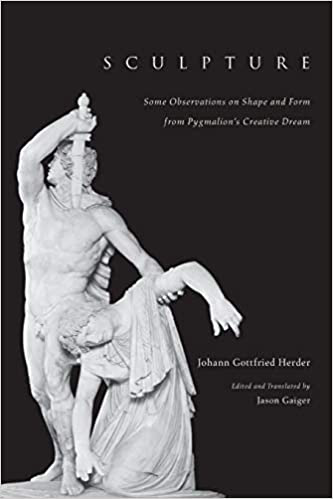
3:16: What about animals that chose to express themselves without language, like artists? Don’t they express themselves without language? Isn’t this form of behaviour a problem for you?
JH: The sculptor stands in the dark of night and gropes towards the forms of gods. The stories of the poets are before and in him. Think also of Handel’s Messiah. When you right from the start discern the gentle voice of consolation and hear mountain and valley even out in the whole of nature at the arrival of the Messiah, until the exaltedness of the Lord reveals itself and the whole world beholds him the sense, the allegory, the story/history is put into the whole. As in painting. Human beings have come to music no otherwise than via the path of language, that signing language is the source of music.
3:16: What about children? Are you saying they can’t think before they have language? How then do they learn?
JH: The first words that we mumble are the most important foundation stones of the understanding and our nursemaids are our first teachers of logic. Whoever has observed children, how they learn to speak and think, the peculiar anomalies and analogies that are expressed in the process, will hardly have any further doubts.
3:16: So for you is language fundamentally social?
JH: Yes. The human being is in his destiny a creature of the herd, of society. Hence the progressive formation of a language becomes natural, essential, necessary for him. No individual being exists for himself: he is inserted into the whole of the species, he is only one for the continuing series. Since the instruction of the single soul is the parental language’s circle of ideas the further formation of human instruction through the circle of the family, through which spirit nature has united the whole species, becomes also the further formation of language. The infant who stammers his first words stammers a repetition of the feelings of the parents.
3:16: So we learn to think through learning language working through the feelings of others?
JH: Our cognition, although admittedly it is the deepest self in us, not as autonomous voluntary choosing and unbound as is believed. One can see that in order for our cognition even to arise from sensation, the object has still to come to us through secret bonds, through an indication which teaches to cognise. This teaching gives our thinking its whole shape and direction.
3:16: So this early teaching is really important?
JH: Oh Richard. We would grope about in deep night and blindness if instruction had not early on thought for us and, so to speak, imprinted in us ready-made formulas.
3:16: So are we forever in the grip of these early ‘ready-made formulas’?
JH: For a long time and often our whole lives, we walk with the support of the staffs that were reached to us in earliest childhood, ourselves thinking but only in forms which others thought.
3:16: Is one of the reasons that you say metaphysics is treacherous because it often tries to transcend what is linguistically expressible – and of course for you thought is dependent on and bounded by language?
JH: If it is true that we can’t think without thoughts., and learn to think through words then language sets limits and outline for the whole of human cognition. This inevitably yields a negative philosophy which asks how far human nature should really ascend in its ideas since it cannot ascend higher., and to what extent one should express and explain oneself since one cannot express and explain oneself any further. How much one would be able to sweep away here which we think wrongly because we said it wrongly, which we want to say without being able to think it.
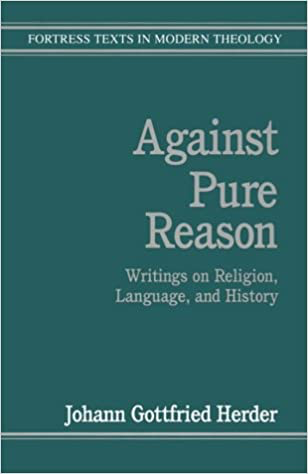
3:16: So metaphysics just can’t do what it intends?
JH: All so-called pure thinking into the deity is deception and game, the worst mysticism, which only fails to recognize itself as such. All our thinking arose from thinking from and through sensation and also still bears, despite all distillation, rich traces of it. The so-called pure concepts are for the most part numerals and zeros and also have the value of ciphers. For that man who seeks out and gets rid of the ghosts of the whole of modern metaphysics, for him await wreaths of honour.
3:16: So metaphysics is based on a bad mistake.
JH: Nothing in the world has produced more opinions and perhaps also more errors than that one has considered and hypostatized abstract concepts as individual existences. Nature, virtue, reality, perfection. Originally these concepts were nothing but abstractions, relations to this and that, so-to-speak shadows and colours of things; we make them into things themselves, and hence imagine finished skill-things which the soul collects like gold pieces, realities that are only relations and which we think of as positions, perfections that we individualise and attribute as such to the soul.
3:16: So what should we do?
JH: Let us by analysis of the concepts get back to the origin of the words; and we will see in them substantivised phenomena.
3:16: So do you think Kant hypostatized ‘Reason’?
JH: Obviously.
3:16: And can differences in language cause division and hostilities between communities? Is the current trouble in Ukraine a language issue at some level?
JH: The basis of this difference between such little peoples in language, manner of thought, and manner of life is reciprocal familial and national hatred.
3:16: You’re also a foundational figure in the development of another big philosophical tradition, that of hermeneutics. Unlike someone like Gadamer who championed interpretation oriented towards features of the interpreters own standpoint, you think texts and discourse have an original meaning that we should try and find don’t you?
JH: Yes.
3:16: You agree with many Enlightenment thinkers that there’s such a thing as a common human nature, so do you think, like Hume and Voltaire, that people are generally the same everywhere and at everytime?
JH: Good God no. Hume! Voltaire! Classical ghosts of twilight. Look, in the case of each individual human being. Whoever goes into a madhouse finds all the fools raving in a different way, each in his world; thus do we all rave, very rationally, each according to his fluids and tempers. The deepest basis of our existence is individual, both in sensations and in thoughts. No human being, no country, no people, no history of a people, no state is like another, and consequently the true, the beautiful, and the good is not alike in them either.
3:16: This must mean you think interpretation very difficult.
JH: It’s tough Richard. Hence why I seek to read more in the spirit of the author than in the book; the more I penetrate into it, the clearer and more coherent everything becomes.
3:16: So hermeneutics requires more than just being an expert in the language?
JH: An expert on language and an interpreter are two very different creatures, as we can see from so many current language experts for recent idioms. These can understand the language but the author not at all, they cannot penetrate the simplest meaning, let alone its nuances. The same can and probably will be so of the language-experts for the Bible, precisely because this is the oldest, simplest, most encompassing book. But notwithstanding this, the language expert (minus his rigidity) is in himself a good, useful, indispensible thing; indeed, in grammatical matters and the niceties of critique even his rigidity is often of service.
3:16: And because of your thinking about language, do you think non-verbal art can be interpreted?
JH: Yes I do Richard, I really do.
3:16: Do you think by realizing that there are these differences between cultures then even art forms that are supposedly in the same genre will have tremendous differences between one another that we need to understand if we are to interpret the art correctly?
JH: Yes. Homer’s, Virgil’s, Arioso’s, Milton’s, Klopstock’s works bear the single name of ‘epic poetry’, and yet, even according to the concept of art that lies in the works, let alone according to the spirit that ensouls them, they are quite different productions. Sophocles, Corneille, and Shakespeare share, as tragedians, only the same; the genius of their representations is quite different. Similarly in the case of all genres of poetry, down even as far as the epigram. It is virtually the case that for every original author of a different people and for every one of his original plays we would have to find a new name, and hence a new canon of rules.
3:16: Is this why you take a genealogical or genetic approach to genre (and interpretation generally) – you want to find out how a genre started and has developed since in time?
JH: It is not only delightful to track down the origin of the objects that we want to understand with some measure of completeness but also necessary. Obviously we lose with it a large part of the history, and how greatly does the history not serve towards explaining the whole? And moreover, the most important part of the history, from which afterwards everything is derived; for just as the tree can be traced back to its root, so likewise the bloom in an art to its origin. The origin contains within itself the entire nature of its product, just as the whole plant with all its parts lies hidden in the seed; and I will not be able to derive from the later condition the degree of illumination that makes my explanation genetic.
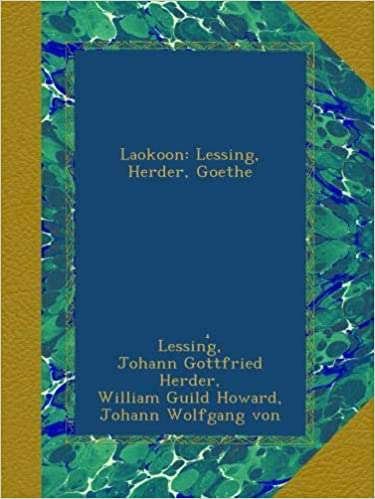
3:16: Should we be methodological empiricists or rationalists when in the domain of aesthetics?
JH: Empiricists Richard. Begin not from the top but from the bottom.
3:16: A key concept for you is Einfuhlung or ‘feeling ones way into’. Is this how you think we can bridge the gap of interpretation between different historical periods, cultures, individuals?
JH: It is. The whole nature of the soul, which rules through everything, which models all other inclinations and forces of the soul in accordance with itself, and in addition colours even the most indifferent actions – in order to share in feeling this, do not answer on the basis of the word but go into the age, into the clime, the whole history, feel your way into everything – only now are you on the way towards understanding the word.
3:16: So this is an essential tool for interpreters? Is it at the heart of your hermeneutic project?
JH: An interpreter is aiming for the eagle’s glance, the noble sense that casts aside all foreign plunder and rushes to embrace the naked whole image of an author’s mind, a whole feeling. How different is the world in which the Arab and the Greenlander, the soft Indian and the rock-hard Eskimo, live. How different their civilization, food, education, the first impression that they receive, their inner structure of sensation. And on this structure rests the structure of their thoughts, and the offprint of both, their language.
3:16: So does the imagination have a role in interpretation for you?
JH: Yes. Let one only transpose oneself into the whole nature of the Orientals, feel their inclination to live in the free, great Creation, to interact with trees, plants, and animals, to be a ruling god in meadows and over the creatures of the field, and then to enjoy his peace in bliss in the bosom of beautiful nature, in the lap of the voluptuous earth.
3:16: And does this only apply to these radical Others, or is this part of what you think has to happen even with authors, say, of your own civilization?
JH: Read in the spirit of the author and you see which senses ruled and which were subordinate in him, according to what rules he ordered and adjusted the chaos of his impressions, what images and sounds he clung to and made into guiding staffs of his thinking. The study of the human soul in this manner is the deepest means of education. Through a sort of inspiration and sympathy, we think, we sense with him. This is living criticism, deep heuristics. Now for the first time do we understand what we are reading, feel it from the roots up to the shoes. Where it is worth the effort this living reading, this divination into the author’s soul, is the only reading. It becomes a sort of enthusiasm, intimacy, and friendship which is often most instructive and pleasant for us where we do not think and feel in the same way. The more one knows the author from life and has lived with him, the livelier the intercourse becomes.
3:16: So does this mean that in order to understand the feelings of an ancient Greek, say, I have to actually have such feelings?
JH: Of course not. David in the psalms had his affects and worries as a refugee and as a king. We are neither, and hence may neither curse enemies that we do not have nor exult over them as victors. But we must learn to understand and appreciate these feelings.
3:16: You are also important in developing a new theory of translation which some have called a ‘foreignising’ rather than a ‘domesticating’ translation theory. So how can we translate anything if we are confronted with radical mental differences?
JH: Well, I have a complaint against those who want to read Homer in a translation, even if one as correct as possible. You are no longer reading Homer but something which approximately repeats what Homer said inimitably in his poetic language.
3:16: So is translation possible?
JH: Yes, but I consider it the finest from of criticism to be able to show exactly the middle course “how a translator must not step a hair’s breadth too close to his two languages, the one from which and the one into which he translates”. A too lax translation, which our critics commonly call free and unforced, sins against both: the one it fails to satisfy, for the other it stirs no fruits. A too accommodating a translation, which lightweight souls slavishly reprimand, is much more difficult, it strives on behalf of both languages, and seldom gets as valued as it should be. Since an author must everywhere experiment, accommodate, dare, he earns the reward from our censors with the high eyebrows that they decry him for three failed experiments, take everything daring in him to be linguistic error, and approach the attempts of an artist like a pupil’s exercises of apprenticeship.
3:16: Do you agree with Lemaistre and Drydon who think we should translate by writing what the foreign author would have written had she had the target language?
JH: I’d like to see them try. Homer, Aeschylus, and Sophocles, their works in our language? In our time? With our morals? Never! As little as we Germans will ever get a Homer who in all respects is for us what he was for the Greeks.
3:16: So what must a translator do?
JH: The best translator must be the best exegete. Where is a translator who is simultaneously philosopher, poet and philologist? He should be the morning star of a new epoch in our literature. The true translator has a higher intention than making foreign books intelligible to readers, an intention which raises him to the rank of an author who really enriches the state.
3:16: What is this higher intention?
JH: None other than fitting to his mother-tongue excellent thoughts after the model of a more complete and perfect language. Thus did Apollo cause Achille’s armor to fit Hector as perfectly as if it had been made on his body. One should undertake the formation of one’s language through attempts on the model of a better language. This already represents to us clearly many concepts for which we need to look for words, and presents these concepts in such juxtapositions that we need new connections. Not to mention here euphony. What handsome advantage would accrue to our language if it learned to mould itself to the Greek and Latin languages as much as possible, and showed its pliability to the eyes of the public. If our translators add to these ancients also some modern foreigners whose genius is proven and whose language is related with ours, what would we not have to be grateful to our translators for!
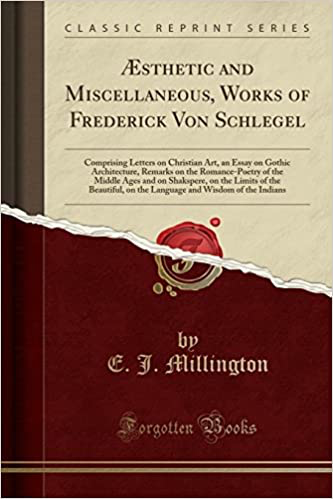
3:16: How should they do this?
JH: By bending and enriching our language.
3:16: How important is it that philosophy works more like anthropology than it has done previous to your approach?
JH: If philosophy’s viewpoint gets changed in a manner in which the Copernican system developed from the Ptolemaic system, what new fruitful developments must not occur here, if our whole philosophy becomes anthropology? Let the human soul, in itself and in its appearance on this earth, its sense instruments and concerns and hopes and pleasures and characters and duties and everything that can here make human beings happy, be my first concern. Let everything else merely be set aside. For this purpose I want to collect data in the history of all times: each time should supply me with the image of its own ethics, customs, virtues, vices and happiness’s.
3:16: Is this anthropological turn in philosophy an attempt to explain or understand cultures?
JH: Understand, so that one gives us whole, faithful natural history of peoples in their own monuments with some completeness, not speak oneself, but let them speak, not always ask “what the good of that is” but, good or not, present it, not beautify, not trim and distort it with the hood of religion or classical taste, but give it as it is, and with faithfulness, joy and love.
3:16: Are you an interpretative holist?
JH: Yes. The whole nature of the soul, which rules through everything, which models all other inclinations and forces of the soul in accordance with itself, and in addition colours even the most indifferent actions – in order to share in feeling this, do not answer on the basis of the word but go into the age, into the clime, the whole history, feel yourself into everything – only now are you on the way towards understanding the word. Each nation must be considered solely in its place with everything that is and has – arbitrary separatings, slingings into a confused jumble, of individual traits and customs yield no history. With such collections one enters into a charnel house, and equipment and clothes closet, of peoples, but not into living creation.
3:16: Are you advocating participant-observation as a key element of doing philosophy as anthropology?
JH: Yes. Of the author DePages, read his depictions of the characters of several nations in America, of the peoples of the Philippines, how he sought to, so to speak, incorporate into himself the manner of thought of the Hindus, of the Arabs, of the Druse etc even through participating in their manner of living. Travel descriptions of such a sort expand our horizon and multiply our sensitivity for every situation of our brothers.
3:16: There are (at least) two contrasting Enlightenment positions regarding cosmopolitanism: one is homoginising and the other pluralistic. Where do you stand?
JH: Pluralistic obviously because it presupposes that each nation has its riches and distinctive features of spirit, of character as of country. These must be sought out and cultivated. No human being, no land, no people, no history of a people, no state is like another, and consequently the true, the beautiful, and the good are not alike in them. If this is not sought, if another nation is blindly taken as a model, then everything suffocates. Above all, let one be unbiased; let one have no pet tribe, no favourite people on earth. The nature-investigator presupposes no order of rank among the creatures he observes; all are equally dear and valuable to him. Likewise the nature-investigator of humanity. Nature developed the form of human type as manifoldly as her workshop required and allowed. The Afro American, the Native American, the Mongol has gifts, talents, preformed dispositions that the European does not have.
3:16: So imperialism and colonialism are out then? You’re a cultural relativist?
JH: Of course. When we have turned grey in certain ethical customs and modes of representation, and are consequently so grown-together with them that we believe them essential to humanity and hence quite inseparable from it, how often have I been quite beneficially amazed and ashamed to find that a few levels further up or down on the scale of peoples whole peoples know nothing of these modes of representation and ethical customs, have never known anything of them, often cherish the very opposite ones just as dearly, and yet despite this are in tolerably good condition and as comfortable as the fragile clay from which humanity is formed, together with the necessary expenses which each person incurs from without, could allow.
3:16: Does knowledge diminish or expand with this approach ?
JH: The soul experiences a noble expansion when it dares to place itself outside the narrow circle that clime and education have drawn around us and at least learns amid other nations what one can dispense with. How much one there finds dispensed with and dispensable that one considered essential! Notions that we often took to be the most universal axioms of human reason disappear here and there with the clime of a place, as dry land disappears like a cloud for someone sailing out to sea.
3:16: What do you make of Rousseau’s claims that we were all happier when not civilized?
JH: It’s rubbish. We in our age err when, like Rousseau, we praise times that no longer are and never were, when, to our own discontent , we create fictional images out of them and cast ourselves aside so as not to enjoy ourselves.
3:16: Another area where you’ve made important contributions is in the philosophy of mind – you go on about Geist all the time. You give a naturalistic, anti-dualist interpretation of mind – even when you’re interpreting the Bible don’t you? In this you’re very like Spinoza who does the same, translating the Hebrew word ‘ruagh’ as meaning ‘breath’ or ‘life’, ‘breathing’… In a way you see the Bible as naturalistic in some sense when read straight without Platonic filters.
JH: Well let’s face it Richard, the Mosaic document remains more faithful to the sensuous, simple truths: the human being is a life endowed animal of the earth; he uses the life that God gave him; he is, in his earthly, life-endowed existence, and in an innocent manner, happy within the bounds of nature.
3:16: You say minds are forces, but you’re a bit vague about what you think they are.
JH: Well that’s fair, but I have not yet known any philosophy that explained what force is. It’s a kind of dispossession: if animal sensuality and restriction to a single point fell away then a different creature came into being, whose positive force expressed itself in a larger space, in accordance with finer organization, more clearly, and which, separated and free, not only cognizes, wills and effects but also knows that it cognizes, wills and effects. This creature is the human being, and we wish – in order to escape the confusions with the specific forces of reason etc – to call this whole disposition of its natural ‘awareness’.
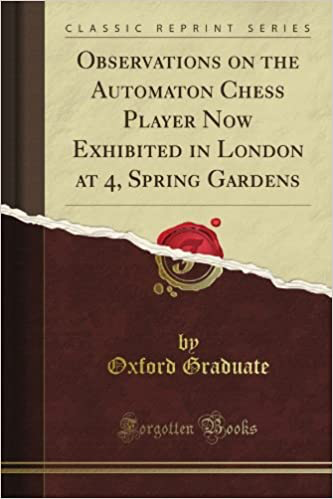
3:16: Are you a physicalist?
JH: Perhaps. Yes. Perhaps dead matter has wound its way through all levels and courses of mechanism and purified itself up to the little spark of life that, to be sure, is only the beginning of organism, but still governs so mightily in the sensations of a human soul. In the abyss of irritation lies the seed of all sensation, passion and action. Sensation is only the aggregate of all obscure irritations just as the thought is the bright aggregate of sensations. Physiology is the inner sanctum of the soul. We acquire a sensuality, a structure of nerves – No one demands to know the physiology of these parts here. It is enough for us to know that the pith of the nerves is nothing but a finer web of threads, the string-play of an irritation that is now called sensation and that now communicates itself and takes effect in an infinitely more mental and higher way.
3:16: So is immortality ruled out?
JH: The immortality of the metaphysical monad is nothing but meta-physical immortality, whose physical side does not convince me.
3:16: Why not?
JH: Well Richard, if soul is what we feel, what all peoples and human beings know about, what its name says too, that which ensouls us, original source and epitome of our thoughts, sensations, and forces, then no demonstration of its immortality from out of itself is possible. We enfold in words what we want to unfold, presuppose what no human being can prove or even just comprehends or understands , and one can hence infer whatever one wants. The transition of our life into a higher life, the remaining and waiting of our inner human being for the day of judgment, the resurrection of our body to a new heaven and a new earth, cannot be demonstrated from out of our monad. It’s a beautiful dream to imagine a future life where one can enjoy in friendship all those wise and good men who ever worked for humankind. But in a certain sense history already opens these delightful bowers of conversation and intercourse with the insightful and decent of so many times. Here Plato stands before me; there I hear Socrates’ friendly questions and share his final fate.
3:16: So does your naturalized version of immortality mean we have to be selfless rather than selfish?
JH: Yes it does Richard. Maxims and moral values have been handed down to us. This chain of effects has reached us; it has taken hold of us and bound us. Whether we like it or not we have to hold fast to it and for good or ill, actively or constraining , continue to effect our world and our posterity. This is the core of true human immortality.
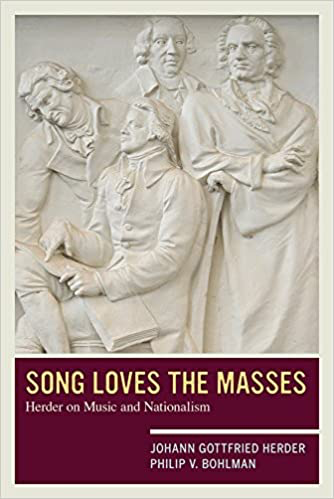
3:16: So how do you answer your own question: how are sight and hearing, colour and word, scent and sound, connected?
JH: Not among themselves as objects.
3:16: So where is the yellow in a daffodil if not in the daffodil?
JH: The properties in the objects are merely sensuous sensations in us, and as such do they not all flow into one? We are a single thinking sensorium commune, only touched from different sides. We are full of such connections of the most different senses, only we do not notice them except in onsets which make us beside ourselves, in sicknesses of the imagination, or on occasions when they become unusually noticeable.
3:16: Just as you said that linguistic meaning is fundamentally social in nature, is mind and the mental also social?
JH: That seems right.
3:16: Do you think we have an unconscious?
JH: Of course. Since everything swims in irritation and scent and force and ethereal stream, since our whole body, so manifoldly ensouled in its diverse parts, seems to be only a single realm of invisible, inner, but less bright and obscure forces which is in the strictest bond with the lady monarch who thinks and wills within us – the conscious soul or mind – so that everything is at her command and in this inwardly linked realm space and time disappear – what could be more natural than she rules over those without which she would not be what she is? For only through this realm , in this connection, did she become and is she a human soul. Her thought only arises from sensation; her servants and angels, messengers of air and flame, stream to her for food, just as they only live in her will. She rules, to speak with Leibniz, in a realm of slumbering, but that much more deeply effective, beings.
3:16: Are these unconscious conditions individualized?
JH: Oh yes. If a human being could sketch the deepest, most individual basis of his enthusiasms and feelings, of his dreams and train of thought, what a novel it would be. Let’s face it Richard, no two things in the world are identical to each other, let alone such an artful, infinitely manifold structure as the human being, let alone each living wheel of this structure with its product, the irritation, the vapour of sensation, the mental water of life, let alone the eternal confluence and the mixing of these vapours in their portals, paths, and drives, let alone, finally, the omnipresent, inwardly living I, the image of the Creator that takes effect back on these from out of itself. If no dissector has yet found two identical arteries, glands, muscles, canals in two bodies, then multiply and persue the products of this difference through each play of each irritation and each sensation up to the innermost workshop of consciousness – a mass for which all numbers are too small. Infinity! Abyss!
3:16: Wow. So how do we discover these unconscious depths?
JH: A biographer, if he wants to deserve this name, must above all know how to draw the form of his hero from his visage, so to speak. And since we do not even know ourselves from within and we could hardly therefore become perfect biographers of ourselves even if we were all like Montaigne, it follows that the historian must all the more study his author from without in order to scout out his soul in words and deeds.
3:16: Ah, so we must observe?
JH: Yes. In this way you sketch the image of the sun not from its shining visage but after its reflection in water.
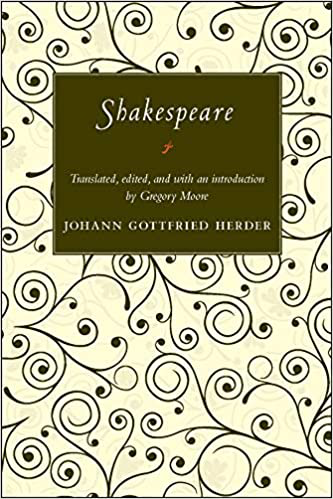
3:16: This is something that you regard Shakespeare as a master of doing don’t you?
JH: Only the mind of the human being knows what was in the human being. If no one else then the poets’ prophecies and secret intuitions have proved this. A character created, conducted, maintained by Shakespeare is often a whole of human life in its hidden springs; without knowing it, he depicts the passion right down to the deepest abysses and fibers from which it sprouted.
3:16: And what is self consciousness in your theory?
JH: I call it apperception. All sensations that arise to a certain clarity become apperception, thought, the soul cognizes that it senses. People are in the habit of according to the soul a mass of subordinate forces but many experiences show that what in them is not apperception, consciousness of self feeling and of self activity, belongs only to the sea of inflowing sensuality which stirs the soul, which supplies it with materials, but not to the soul itself.
3:16: Now one of the areas where you also made a huge impact and have a deep interest is in art and aesthetics. We’ve already seen how, in your philosophy of language you see non-linguistic art as expressing meaning and also in your hermeneutics how you think those arts are fit for interpretation via an identification of genre. But you go further don’t you and more or less reinvent aesthetics and kind of kick start the Romantic movement – even though of course you abhor a system! You made aesthetics look much more like anthropology don’t you, with cultures and their arts embedded and of their time and space?
JH: It is stupidity to tear a single Egyptian virtue out of the land, the time, and the boyhood of the human spirit and to measure it with the criterion of another time. The best historian of the art of antiquity, Wincklemann, obviously only passed judgment on the artworks of the Egyptians according to a Greek criterion, hence depicted them very well negatively, but so little according to their own nature and manner that with almost every one of his sentences in this most important matter the obviously one-sided and sidewards-glancing aspect glares forth.
3:16: So Wincklemann didn’t consider what the Egyptians were trying to do when he judged them, and so missed their genius?
JH: Of course. They were supposed to be mummies, memorials to deceased parents or ancestors according to all the exactness of their facial traits, size, according to a hundred fixed rules to which the boy was bound. Hence naturally, precisely, without charm, without action, without movement, precisely in this grave-pose with hands and feet full of rest and death – eternal marble mummies. That is what they were supposed to be and that is what they are too. 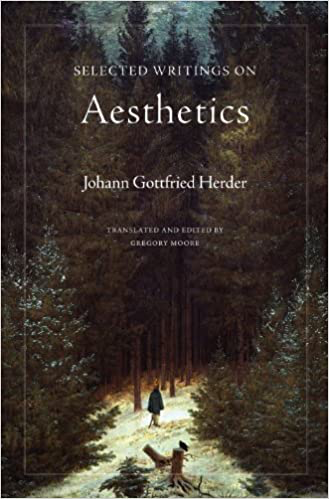
3:16: Is that why you think arguments about whether modern art is worse or better than ancient art is a mistake – that whole Keats or Dylan question is stupid?
JH: The quarrel is very empty. It became even emptier due to the fact that people assumed no or a false crierion for comparison, for what was supposed to decide the ranking here? The art of poetry as an object? How many fine determinations it would require in order discover the summit of perfection in each kind and genre according to place and time, purpose and means, and to apply it impartially to each case compared!
3:16: You don’t make beauty as important as many of your contemporaries do you?
JH: It just means everything that has a pleasurable effect on the soul. Sight allegorises the images, the representations, the conceits of the soul.
3:16: Do the arts have a role to play in moral education for you?
JH: Yes. Songs have always been the most effective means of inculcating attitudes in the people. Arabs praised not civil laws but their poems. And indeed the latter have always had more effect on their ethics than the former were perhaps ever able to have.
3:16: How does this happen?
JH: Through light rules, still better, through good examples and so forth.
3:16: Your moral philosophy is pretty radical too isn’t it. Are morals eternal and discovered, or are they invented by cultures?
JH: Well Richard, if you’ve been paying attention, I’ve already told you. Look, the spirit that gave life to peoples , even if we want to call it in each case honor, heavens!, how different Greek honor, and Roman honor and British honor and French gloire and German rank are!
3:16: Are you a moral sentimentalist?
JH: Yep. If human nature is no container of an absolute, independent, unchangeable happiness as the philosopher defines it, but it everywhere attracts as much happiness as it can, is flexible clay for, in the most different situations, needs, and pressures, also forming itself differently and even the image of happiness changes with each condition and region then at bottom all comparison proves to be problematic. As soon as the inner sense of happiness , the inclination, has changed, as soon as the external occasions and needs form and fix the new sense – who can compare the different satisfaction of different senses in different worlds? – the shepherd and father of the Orient, the farmer and artist, the sailor, competitive runner, conqueror of the world – who can compare them? Nothing turns on the laurel wreath or the sight of the blessed flock, on the merchant ship, or the captured standard, but rather on the soul that needed that, stove for it, has now achieved that, and wanted to achieve nothing but that. Each nation has its centre of happiness in itself, like every sphere its centre of gravity.
3:16: So are you a moral relativist? You seem to assume there are high and low standards, which seems a difficulty for any relativist.
JH: Honestly Richard, my issue is that I do not like comparing at all. At bottom, all comparison proves to be problematic. As soon as the inner sense of happiness, the inclination, has changed, as soon as the external occasion and needs form and fix the new sense – who can compare the different satisfaction of different senses in different worlds? Each nation has its centre of happiness in itself, like every sphere its centre of gravity!
3:16: You do recommend a moral pluralistic cosmopolitanism don’t you? Tell us about this,
JH: It presupposes that each nation has its riches and distinctive features of spirit, of character, as of country. These must be sought out and cultivated. No human being, no land, no people, no history of a people, no state is like the other, and consequently the true, the beautiful, and the good are not alike in them. If this is not sought, if another nation is blindly taken as a model, then everything suffocates. Let one be unbiased.
3:16: What about free will. Do we have it?
JH: To go on about freedom is very easy if one serves every irritation as a cause sufficient for us. For the most part this talk of sufficient grounds is a miserable deception. One is a slave of the mechanism and imagines oneself free, a slave in chains and dreams to oneself that these are wreaths of flowers. As soon as one enters upon speculation one can make anything from anything, one fancies oneself flown up to the empyrean, and in reality the poor maggot still lies in its casing without wings or springtime.
3:16: So no then?
JH: Actually here is truly the first seed of freedom - to feel that one is not free, and with which bonds one is bound. The strongest, freest human beings feel this most deeply and strive further; insane slaves born for the prison mock them and remain lying in the mire full of high dreaming. Luther with his book De servo arbitrio was and still is understood by the fewest people.
3:16: Now I was a bit surprised about your views on human rights. I always thought they were a good thing but you seem to dispute this. Am I right in this?
JH: Ok. I wish I could encapsulate in the word ‘humanity’ everything I have so far said about the human being’s noble formation to reason and freedom, to finer senses and drives, to the most delicate and the strongest health, to filling and ruling the earth. Among the Romans, to whom the word ‘humanity’ actually belongs, the concept had reason enough to develop itself more definitely. Rome had hard laws against serfs, children, foreigners, enemies; the upper classes had rights against the people etc. Whoever pursued these rights with great strictness could be righteous, but was not thereby humane. The noble who voluntarily acted towards children, slaves, underlings, foreigners, enemies as a human being was humanus, humanissimus. Humanity first won its name as a tamer of hard civil laws and rights. Let us honour this word and the thing itself. We need it as much as the Romans. If you look ahead in history you will see that the word human being received quite a different meaning, coming to mean a bearer of duties, a subject, a vassal, a servant. Whoever was not that had no rights. Let us then adopt the Greek’ and Romans’ concept of humanity, for this barbaric human right makes me shudder.
3:16: So everyone is part of your pluralistic cosmopolitanism?
JH: Neither the pongo nor the longimanus is your brother, but the native American, the afro American is. So you should not oppress, murder, rob him, for he is a human being, as you are. The nature-investigator presupposes no order of rank among the creatures that he observes; all are equally dear and valuable to him. Likewise the nature-investigator of humanity. In that period when everything was taking form, nature developed the form of the human-type as manifoldly as her workshop required and allowed. She developed various forces in various proportions, as many of them as lay in her type and as the various climes of the earth could develop in form. The original form, the prototype of humanity lies not in a single nature in both hemispheres. The Cherokee and the Huswana, the Mongol and the Gonaqua are as much letters in the great word of our species as the most civilized Englishman or Frenchman.
3:16: Does religion fit into your conception of humanity?
JH: Religion is the highest humanity of the human being.
3:16: Your views about humanity are normative, but surely you have to admit that humans can be pretty terrible creatures?
JH: What form of inhumanity is there that has not become habitual for some human being, some nation, indeed often a whole series of nations, even to the point that many of them and perhaps the majority consumed the flesh of their brothers? What foolish idea could one think of that has not been in reality enshrined in inherited tradition here or there? Lower than the human being can no rational creature stand. Depending on the hands he falls into he is molded accordingly, and I do not believe any sort of human moral life is possible that has not been lived in by a people or by an individual from the people. All vices and atrocities are played out in history before eventually here and there a more noble form of human thoughts and virtues appear.
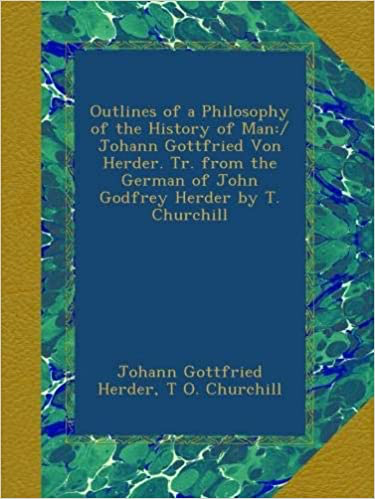
3:16: Your philosophy of history is naturalistic. Does that mean you don’t think God created the universe about 6000 years ago?
JH: Of course not. Nothing affords such a sublime sight as this iage of the great structure of the world; and the human understanding has perhaps never dared, and in part also happily concluded, a longer flight than when it in Copernicus, Kepler, Newton, Huygens and Kant discovered and determined the simple, eternal and perfect laws of the formation and motion of the planets. Our earth has gone through many sorts of revolution before becoming what it is now. The mass of effective forces and elements from which the earth came to be probably contained as chaos everything that was due, and could, come to be on it. In periodic stretches of time the air, the fire, the water, and the earth developed from mental and physical seeds. Many sorts of combinations of water, air, and light had to have preceded before the germ of the first plant organism, for example moss, could emerge. Many plants had to have emerged and died before an animal organism came to be; here too insects, birds, aquatic and nocturnal animals preceded the more fully formed animals of earth and daytime; until finally after all of them the crown of the organic on our earth, the human being, appeared.
3:16: You sound like you’re anticipating Darwin at this point with your historicism?
JH: For me nothing of our conventional history remains: no series of kings, battles, laws, or miserable characters, everything directed at the totality of humanity and its conditions, of migrations and institutions, religions and laws and ways of thought, languages and art.
3:16: Is history teleology?
JH: That’s where historical seeing stops and prophecy begins. It is not things that disquiet human beings but dogmas concerning things. History is a textbook of the nullity of all human things. The philosophy of final purposes has yielded no advantages for natural history; but has rather satisfied its enthusiasts with specious delusion instead of investigation; how much more so thousand-purposed, complex human history.
3:16: So you don’t like historical teleology but surely it’s still ok to do conventional history?
JH: No. For example, our whole medieval history of pathology, and for the most part only pathology of the head, that is, of the emperor and a few classes in the Holy Roman Empire. Physiology of the whole national body – what a different thing that would be! And how mode of thought, formation, ethical custom, mode of expression, and language related to it – what a sea yet to be sailed lies there, and what beautiful isles and unknown spots yet to be found here and there!
3:16: So we should broaden out our studies of history to include the arts, literature and so on. Culture is important for history?
JH: Doing this inner history is valuable as an instrument for our non moral self-improvement.
3:16: Is your genetic method useful in history too?
JH: Of course. If one sketches according to a philosophical heuristics plans concerning how a thing could have arisen, should have arisen, one makes a fool of oneself with all one’s a priori fundamental principles. Not how something should have arisen, could have arisen, but how it arose, that is the question!
3:16: And do you think all the various aspects of a culture are similar to each other?
JH: The whole nature of the soul, which rules through everything, which models all other inclinations and forces of the soul in accordance with itself, and in addition colours even the most indifferent actions – in order to share in feeling this, do not answer on the basis of the word but go into the age, into the clime, the whole history, feel your way into everything.
3:16: What is you political philosophy?
JH: Freedom is the foundation stone of all voluntary virtue in the human heart. Certainly a freedom with laws , but ones which the sound understanding recognizes as such, which freedom elects for itself.
3:16: So this is a kind of extreme liberalism. Yet at times you sound like a mad nationalist rather than the pluralist cosmopolitan you’ve talked about earlier.
JH: Prejudice is good in its time, for it renders us happy. It forces people together into their centre, makes them firmer on their tribal stem, more blooming in their kind, more passionate and hence also happier in their inclinations and purposes. You want me to be the Socrates of our age, but you can no longer have effect like Socrates – for you lack the small, narrow, strongly active, compressed stage, the simplicity of the times, of ethics and of national character, the definedness of your circle. A citizen of the earth, and no longer a citizen of Athens, you naturally also lack the perception of what you should do in Athens. But behold, if you act like Socrates, strive with humility against prejudices, disseminate truth and virtue honestly, with love for human kind, self-sacrificingly, how you can. World and world of posterity is your Athens! Speak ! What you write should deserve the world and eternity because you write for the world and eternity. Teach virtue in such light and clarity as Socrates in his age was not yet able to; encourage to a love of humankind which, if it could exist, would be truly more than love of fatherland and fellow citizens. Be a Socrates of humanity.
3:16: Well now, that sounds better. Are you then not really in favour of strong states?
JH: Each state as such is a machine and no machine has reason, however rational-looking its structure may be. Whoever demands enlightenment from a state as such, whoever believes that the public or the regent must grant him education and happiness, he speaks a language that is unintelligible. The state as a whole is an abstract thing that neither sees nor hears, the public as such is an empty thing. The whole of the state, as soon as it was supposed to be a product of art, would require mechanism. Consequently, it is impossible to avoid living and dead forces, forces of human beings and those of the state, being in eternal conflict, for the essence of the state is founded on this sacrificial contradiction.
3:16: So do you want the state to disappear?
JH: They will dissolve as everything has dissolved and they already now bear the causes of their collapse within them.

3:16: Finally, let’s turn to your views regarding religion. You seem to be both a Christian and yet also open and tolerant to alternatives?
JH: Well Richard, let’s think this through: Can Christianity have a right to ownership, to subjugation, to cruelty? The answer is obvious. But the question whether Christianity does not destroy as much as it improves with its morals is equally important. So it would follow from this that the introduction of any foreign religion is very dangerous. It always destroys national character, venerable assumptions. Do no people peoples differ in everything, in poetry and pleasure, in physiognomy and taste, in customs, moralities and languages? Must not therefore religion, which participates in all this, also differ according to nation. Even individually, so that in the end each person would have his religion, as he has his heart, his conviction and language.
3:16: Is Spinoza important to you in respect of religion?
JH: An idea from which our West is quite distant: that heaven is everywhere, that space and time disappear before God, but that He can only live where there is thought, and where there is the purest thought, effective love. That this is God, God in every point or rather in no point. It is, as it acts, in eternity, raised above space and time, embraces everything, flows together with everything that thinks and loves, and so accomplishes all the works that occur in the world, is God. This idea sounds fantastical, but are the coldest, most factual metaphysics. Read Spinoza Richard!
3:16: Wow. So there is a metaphysics you approve of after all! Your approach to interpreting the scriptures is pretty secular though. Is this partly because you agree with Spinoza who thought that scripture was the best way his cold factual metaphysical God could be understood by non-philosophers, partly because you think the Bible itself is a very naturalistic, earthy religion and partly because you think all religions do a lot of harmful things?
JH: The misuse of Christianity has caused countless evil in the world – a proof of what its proper use can be. Precisely the fact that, as it has thrived, it has so much to make good, to compensate, to indemnify, shows that it must and will do this. The labyrinth of its misuses and errings is not endless.
3:16: As an aside, is it true that you met young Goethe in an inn called ‘To The Mind’?
JH: Indeed, indeed.
3:16: And for the readers here at 3:16, can you recommend 5 books that will take us further into your philosophical world?
JH: 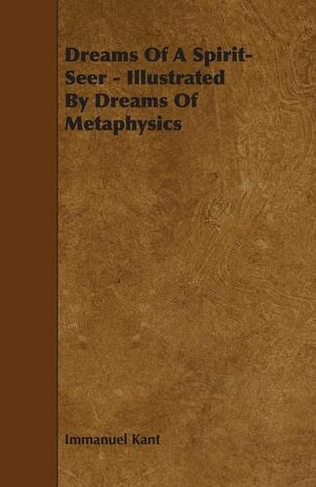
Kant ‘Dreams of a Spirit Seer’
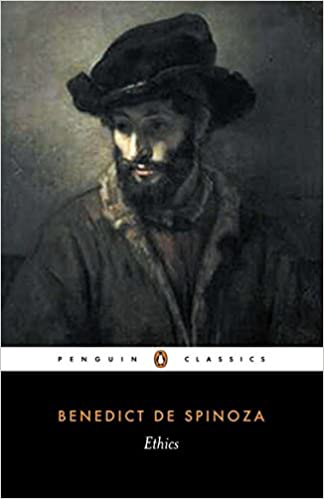
Spinoza ‘Ethics’
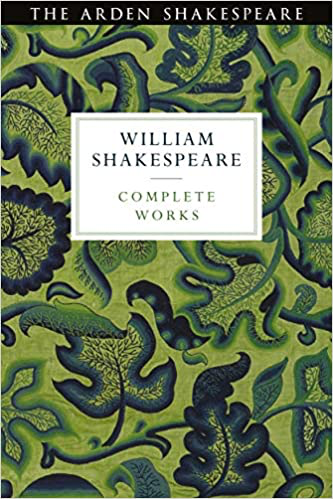
Shakespeare ‘The Complete Works’
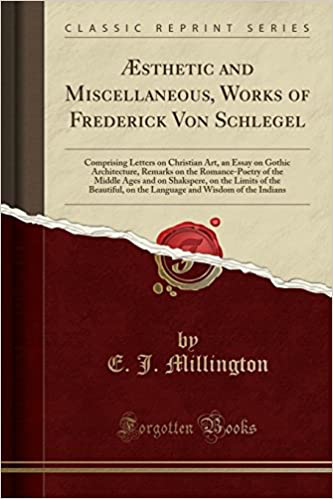
Friedrich Schlegel ‘On the Language and Wisdom of the Indians’.
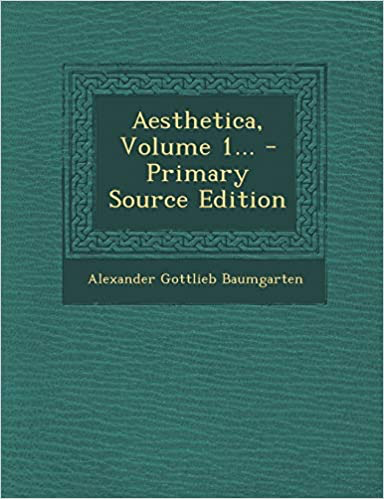
Alexander Baumgarten ‘Aesthetica’
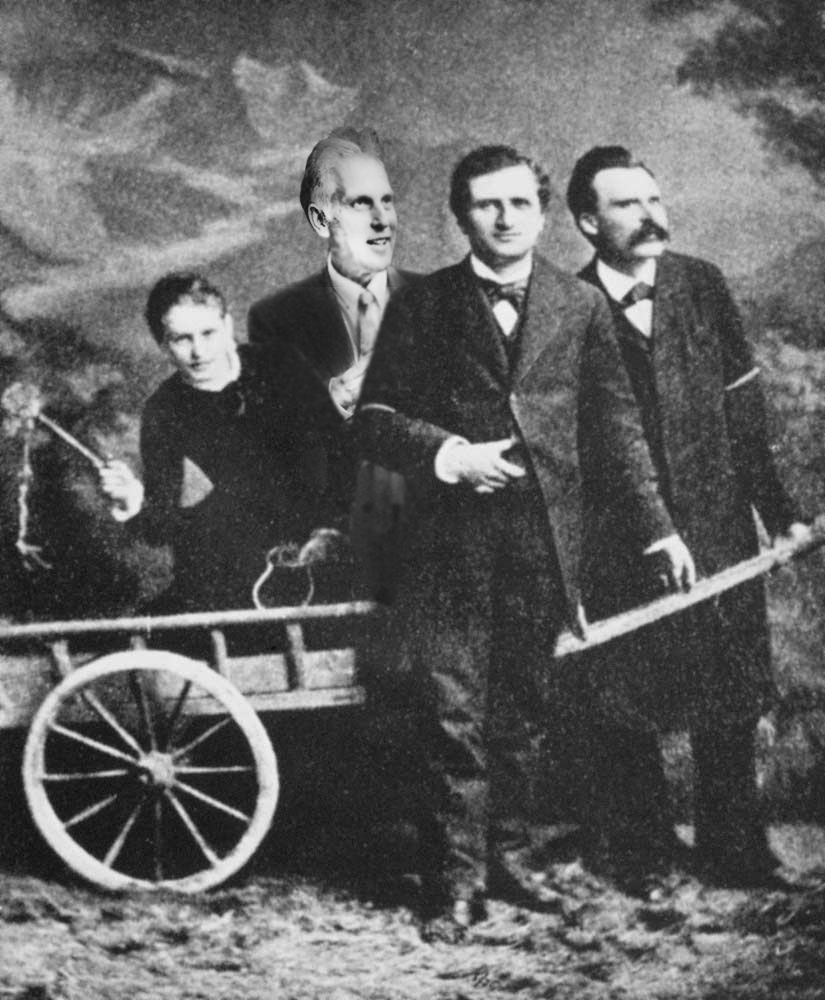
About the Author
Richard Marshall is still biding his time.